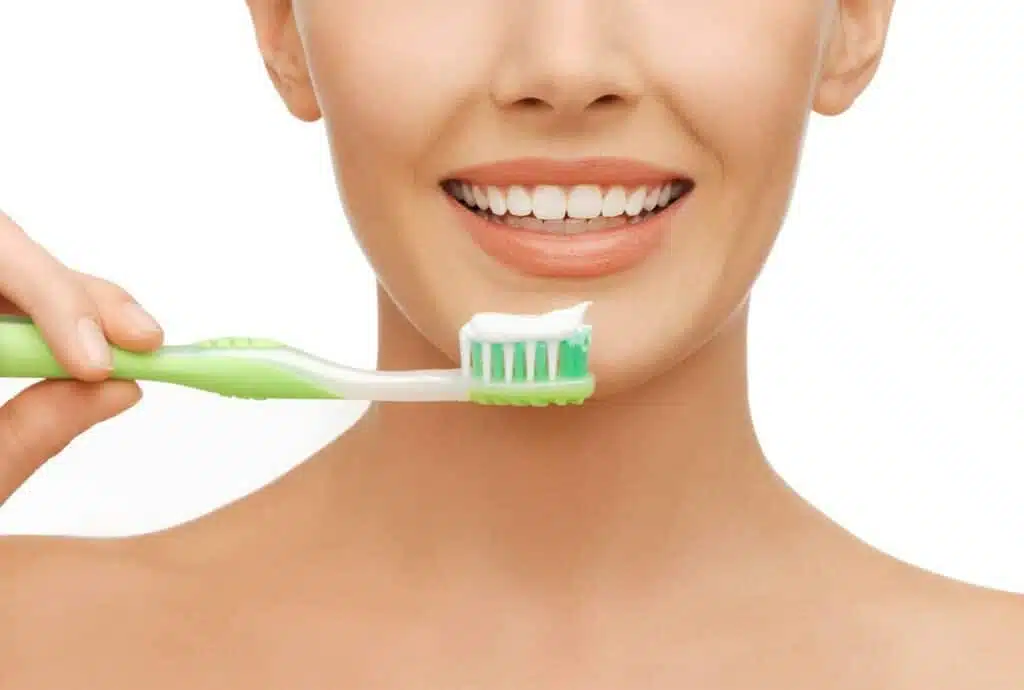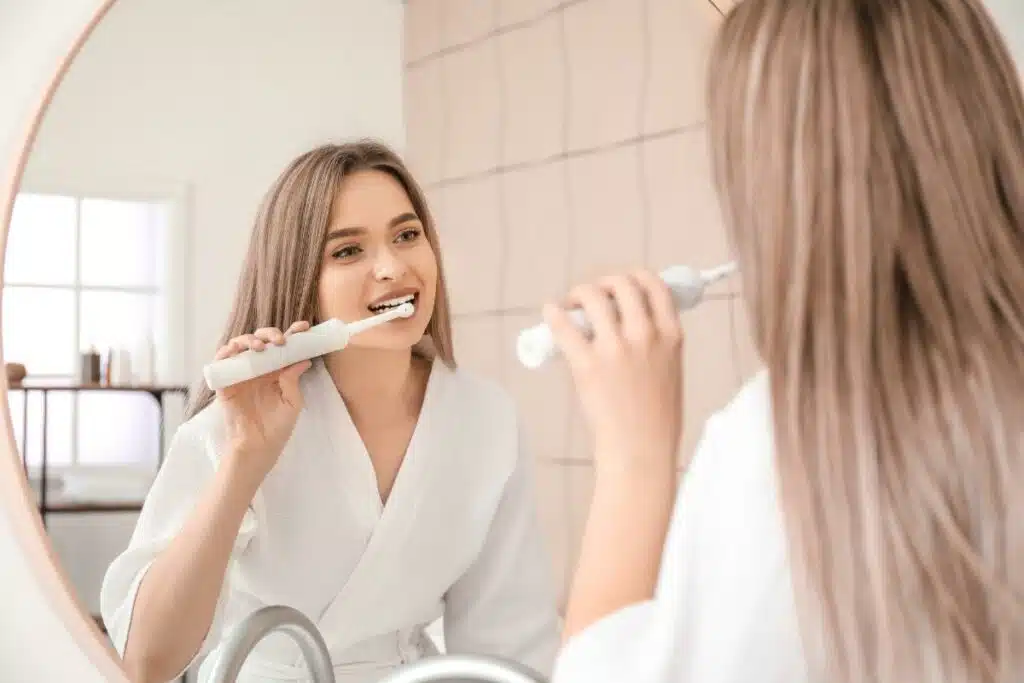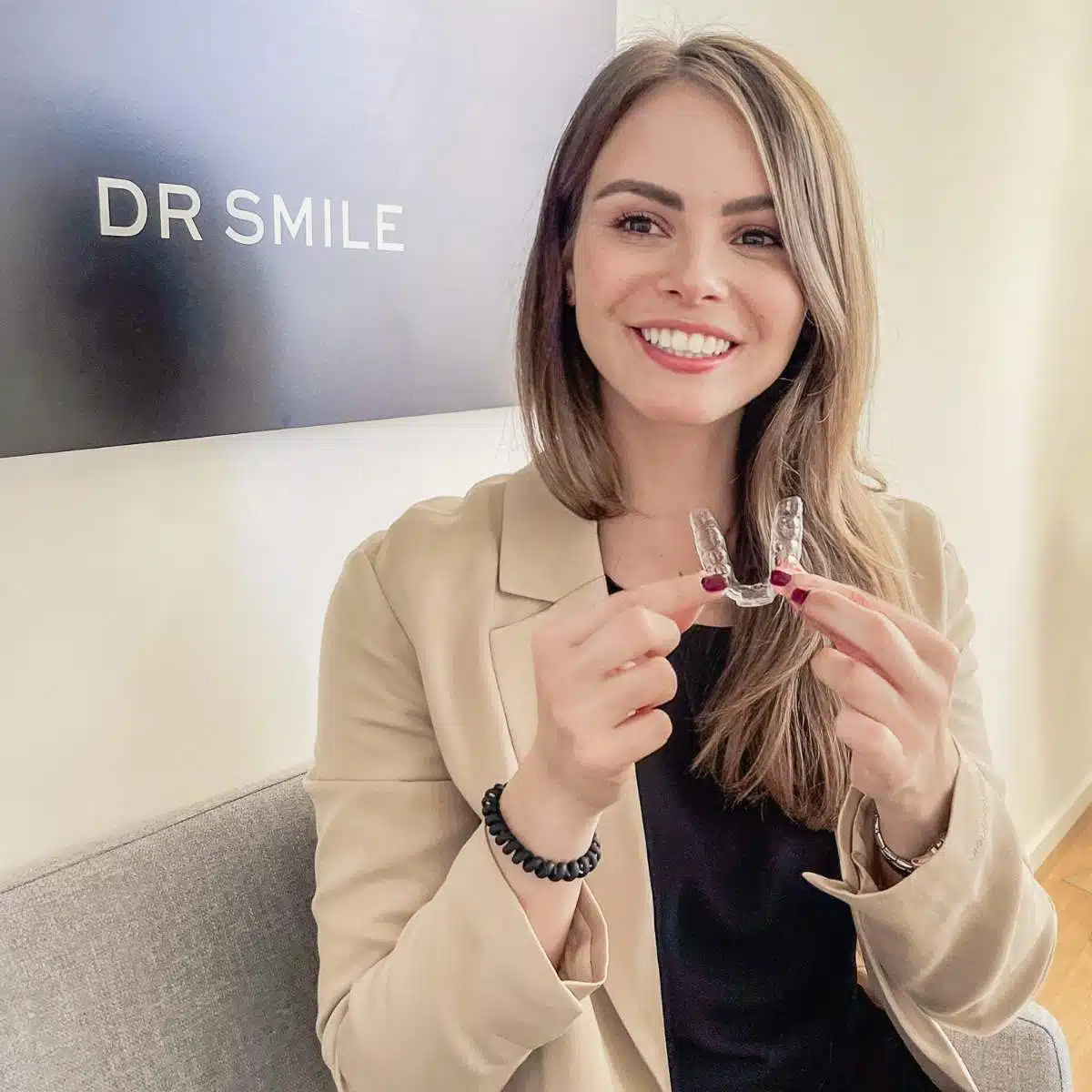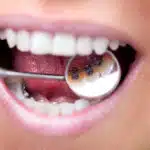Manual toothbrush or electric toothbrush: which is the better choice? Find out the advantages and disadvantages of both options here.
Deciding between a manual toothbrush and an electric toothbrush can definitely be a challenge.
Both options have their own advantages and disadvantages, and the choice often depends on individual needs and preferences.
In this article, you’ll learn everything you need to know to make an informed decision about which toothbrush is the better choice for your dental care.
| Get 150 € discount on your dental correction! |

Book a consultation appointment now at a nearby DrSmile partner practice and find out if teeth straightening with aligners is right for you.
The appointment is completely non-binding and does not involve any costs.
With the code “THATSMILE150” you will receive 150 € discount on the treatment.
The manual toothbrush: tried and tested technology
The manual toothbrush has been an integral part of dental care for many decades. It is easy to use, readily available and inexpensive.
Many of you have probably brushed your teeth with a manual toothbrush your entire childhood and adolescence and are familiar with its use.
Advantages of the manual toothbrush:
- Cost: Manual toothbrushes are much cheaper to buy than electric toothbrushes. You can buy them in almost any supermarket or drugstore, often for just a few euros.
- Availability and selection: There is a huge selection of manual toothbrushes in different sizes, shapes and degrees of hardness. You can easily find a toothbrush that suits your individual needs, be it a soft brush for sensitive gums or a medium-hard brush for a thorough clean.
- No charging or batteries required: Manual toothbrushes do not require batteries or charging. You can use them anytime and anywhere, which makes them particularly practical for traveling or use on the go.
- Easy to use: Handling is simple and intuitive. You have full control over the brushing technique, pressure and speed, which is particularly important if you have sensitive gums or certain dental problems.
Disadvantages of the manual toothbrush:
- Brushing technique: Thorough cleaning with a manual toothbrush requires the right brushing technique. It can be more difficult to clean all tooth surfaces evenly, especially in hard-to-reach areas such as the back molars.
- Efficiency: Studies have shown that electric toothbrushes are often more effective at removing plaque than manual toothbrushes. Manual cleaning can be less thorough depending on the technique and time required.
- Pressure control: Many people tend to apply too much pressure when brushing their teeth, which can damage the gums and tooth enamel. With a manual toothbrush, you need to be careful not to press too hard.

The electric toothbrush: modern technology for dental care
Electric toothbrushes have become very popular in recent years, and for good reason.
They offer a variety of functions that make dental care more efficient and convenient.
The movements of the electric toothbrush – whether rotating, oscillating or sonically activated – ensure more thorough cleaning with less effort.
Advantages of the electric toothbrush:
- Thorough cleaning: Electric toothbrushes often remove plaque more effectively than manual toothbrushes. The fast, automatic movement of the brush head reaches more tooth surface in less time and ensures even cleaning.
- Easy to use: Electric toothbrushes are particularly user-friendly. The brush does most of the work, so you don’t have to concentrate as much on the right technique. This makes them ideal for children, the elderly or people with limited mobility.
- Integrated functions: Many electric toothbrushes have useful functions such as timers to help you stick to the recommended brushing time of two minutes. Some models also have pressure sensors that warn you if you are applying too much pressure.
- Motivation for dental care: The modern, often technically sophisticated functions of an electric toothbrush can increase motivation for regular and thorough dental care. Some models even offer apps that monitor and help improve your brushing habits.
Disadvantages of the electric toothbrush:
- Costs: Electric toothbrushes are significantly more expensive to purchase than manual toothbrushes. Prices can vary greatly depending on the model and features. Added to this are the costs for replacement brush heads, which need to be changed regularly.
- Maintenance and charging: Electric toothbrushes need to be regularly recharged or fitted with new batteries. This can be particularly inconvenient when traveling. They also require a certain amount of care to maximize their lifespan.
- Size and handling: Electric toothbrushes are generally larger and heavier than manual toothbrushes, which makes them less handy. The vibrations can also be uncomfortable for some users.
- Sensitivity: Some people find the vibrations or movements of the electric toothbrush uncomfortable or too intense, especially if they have sensitive gums or have undergone certain dental procedures.
Here we present the best electric toothbrushes.

Manual toothbrush or electric toothbrush: which is the better choice for you?
The decision between a manual toothbrush and an electric toothbrush depends on your personal preferences, your budget and your individual dental care needs.
If you are looking for a simple, inexpensive solution and are familiar with the right technique, a manual toothbrush can be a good choice. It is particularly practical for everyday use and when you are on the go.
However, if you want a more thorough clean and are willing to invest in modern dental care technology, an electric toothbrush could be the better choice for you.
The additional functions and greater efficiency in plaque removal make them the preferred option for many people.
Ultimately, what matters is that you feel comfortable with your choice and use it regularly and correctly.
Both types of toothbrushes can help you achieve good oral hygiene if used correctly.
If in doubt, talk to your dentist to find out which toothbrush is best suited to your specific needs.
| Get 150 € discount on your dental correction! |

Book a consultation appointment now at a nearby DrSmile partner practice and find out if teeth straightening with aligners is right for you.
The appointment is completely non-binding and does not involve any costs.
With the code “THATSMILE150” you will receive 150 € discount on the treatment.
FAQs on the topic of “Manual or electric toothbrush”
Here we answer a few of the most frequently asked questions about manual or electric toothbrushes.
Which toothbrush cleans more thoroughly – a manual toothbrush or an electric toothbrush?
Studies show that electric toothbrushes generally clean more thoroughly than manual toothbrushes as they can remove more plaque. The automatic movements of the brush head reach more tooth surface in less time, resulting in more effective cleaning.
Is an electric toothbrush better for dental health?
Electric toothbrushes can promote better dental health as they often provide a more thorough clean and offer features such as timers and pressure sensors that help to protect gums and teeth. They are particularly useful for people who have difficulty using the correct brushing technique with a manual toothbrush.
How expensive is an electric toothbrush compared to a manual toothbrush?
Electric toothbrushes are significantly more expensive to buy than manual toothbrushes. Prices can vary depending on the model and features and start at around 50 euros. You also have to buy replacement brush heads regularly, which incurs additional costs. Manual toothbrushes, on the other hand, are very inexpensive and readily available.
Can I clean just as well with a manual toothbrush as with an electric toothbrush?
Yes, with the right brushing technique you can also achieve good oral hygiene with a manual toothbrush. However, it requires more effort and care to thoroughly clean all tooth surfaces. You need to make sure you spend enough time and use the right technique to remove plaque effectively.
Manual toothbrush or electric toothbrush: which is better for sensitive gums?
Electric toothbrushes are often better suited to sensitive gums as they offer smooth and gentle movements. Many models have pressure sensors that prevent you from brushing too hard. However, there are also soft manual toothbrushes that have been specially developed for sensitive gums.
How long does an electric toothbrush last?
The lifespan of an electric toothbrush depends on the quality and care, but they generally last for several years. However, you need to replace the brush heads regularly and take proper care of the toothbrush to maximize its lifespan. Manual toothbrushes, on the other hand, should be replaced every three months.
Manual toothbrush or electric toothbrush: which is more practical for on the go?
Manual toothbrushes are generally more practical for traveling as they are small, lightweight and independent of batteries or recharging. Electric toothbrushes are larger and require either batteries or a recharging option, which can make them a little less practical for traveling.
Does an electric toothbrush require special care?
Yes, electric toothbrushes require a little more care than manual toothbrushes. You need to charge them regularly or change the batteries, replace the brush heads and keep the toothbrush clean and dry to protect the electronics. Manual toothbrushes are easier to care for in this respect.
From what age can children use an electric toothbrush?
Children can use an electric toothbrush from the age of around 3. There are special models for children that offer smaller brush heads and gentler movements. Nevertheless, it is important that dental care for children is always supervised by an adult.
How often should I change the brush head on my electric toothbrush?
The brush head of an electric toothbrush should be replaced approximately every three months, similar to a manual toothbrush. If the bristles are frayed or discolored, it is time for a new brush head to keep the cleaning performance optimal.



Leave a Reply